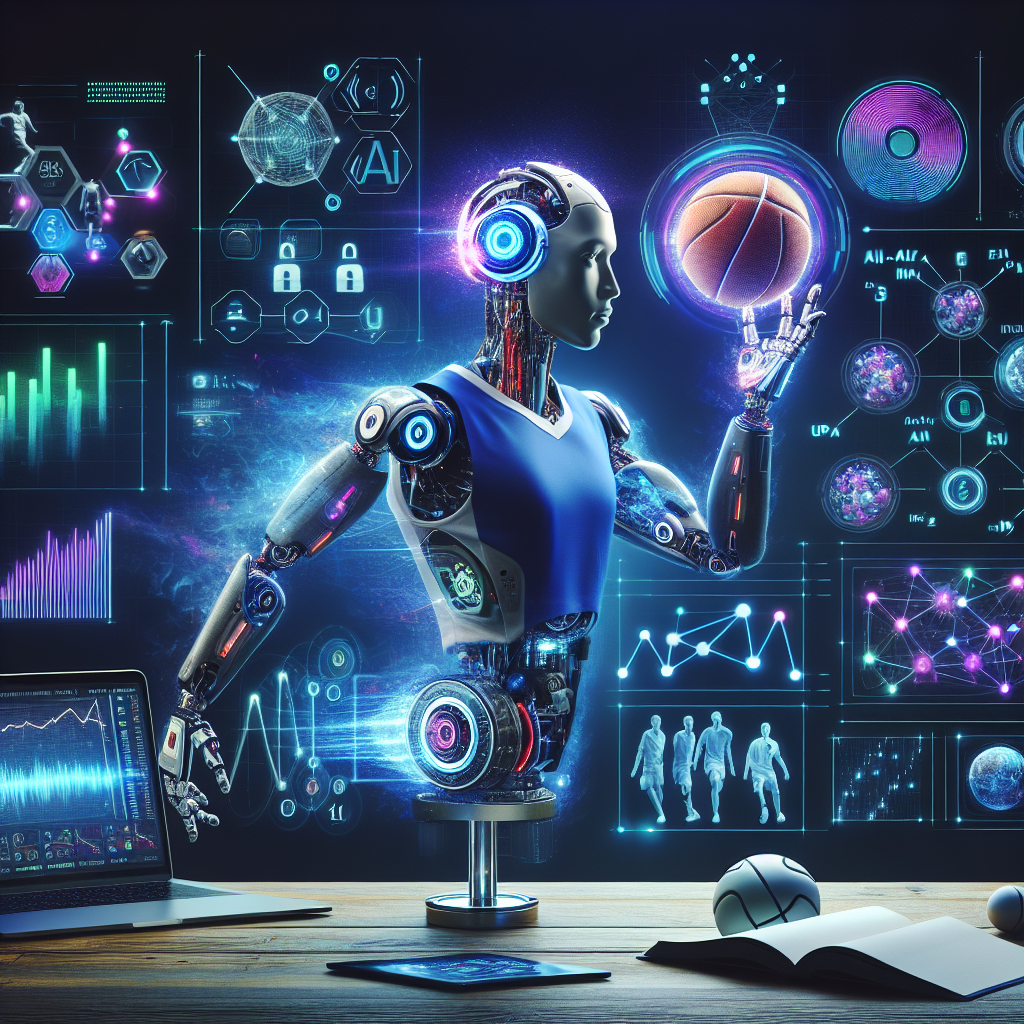Artificial Intelligence (AI) has been making waves across various industries, and sports analytics is no exception. AI is revolutionizing the way sports teams analyze data, make decisions, and improve their performance on the field. From predicting player injuries to optimizing play strategies, AI is changing the game for athletes, coaches, and fans alike.
One of the key ways AI is transforming sports analytics is by analyzing vast amounts of data to uncover patterns, trends, and insights that humans may not be able to detect on their own. With the help of AI algorithms and machine learning models, teams can analyze player performance metrics, game footage, and other forms of data to make more informed decisions.
For example, AI can be used to predict the likelihood of a player getting injured based on their playing style, physical condition, and other factors. This information can help teams take preventative measures to reduce the risk of injuries and keep their players healthy throughout the season.
AI can also help teams optimize their play strategies by analyzing game footage and identifying patterns in the opposing team’s plays. By using AI to identify weaknesses in the opponent’s defense or predict their next move, teams can adjust their game plan accordingly and increase their chances of winning.
Another way AI is revolutionizing sports analytics is through the use of wearable technology. Athletes can now wear devices that track their movement, heart rate, and other biometric data in real-time. This data can be analyzed using AI algorithms to provide insights into an athlete’s performance, endurance, and recovery time.
For example, a soccer player wearing a GPS tracker during a game can have their movement patterns analyzed by AI to identify areas where they can improve their speed, agility, or positioning on the field. Coaches can use this information to tailor their training programs to address specific weaknesses and help players reach their full potential.
AI is also being used to enhance the fan experience. With the help of AI-powered cameras and sensors, sports broadcasters can provide viewers with real-time statistics, replays, and insights during live broadcasts. Fans can get a more immersive experience by seeing player stats, game analysis, and other information overlaid on their screens as they watch the game.
In addition to transforming the way teams analyze data, make decisions, and engage with fans, AI is also changing the way sports betting and fantasy sports are played. AI algorithms can analyze vast amounts of data to predict game outcomes, player performances, and other variables that can help bettors and fantasy sports players make more informed decisions.
With the help of AI, sports analytics is becoming more sophisticated, accurate, and data-driven than ever before. Coaches, athletes, and fans can all benefit from the insights and information that AI provides, ultimately leading to better performance on the field and a more engaging sports experience for everyone involved.
FAQs:
Q: How is AI being used in sports analytics?
A: AI is being used in sports analytics to analyze vast amounts of data, predict player injuries, optimize play strategies, track athlete performance, enhance the fan experience, and improve sports betting and fantasy sports outcomes.
Q: How can AI help prevent injuries in sports?
A: AI can help prevent injuries in sports by analyzing player data, identifying risk factors, and providing insights into ways to reduce the likelihood of injuries. Coaches and medical staff can use this information to develop injury prevention strategies and keep players healthy.
Q: How is AI changing the fan experience in sports?
A: AI is changing the fan experience in sports by providing real-time statistics, replays, and insights during live broadcasts. Fans can get a more immersive experience by seeing player stats, game analysis, and other information overlaid on their screens as they watch the game.
Q: How does AI analyze game footage in sports analytics?
A: AI can analyze game footage in sports analytics by using computer vision algorithms to track player movements, identify game patterns, and provide insights into play strategies. Coaches can use this information to make more informed decisions and improve their team’s performance on the field.
In conclusion, AI is a gamechanger in the world of sports analytics. From predicting player injuries to optimizing play strategies and enhancing the fan experience, AI is transforming the way teams analyze data, make decisions, and engage with fans. With the help of AI, sports analytics is becoming more sophisticated, accurate, and data-driven than ever before, ultimately leading to better performance on the field and a more engaging sports experience for everyone involved.
